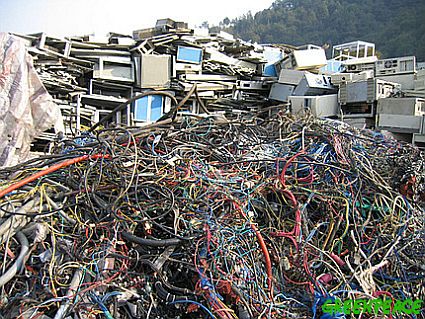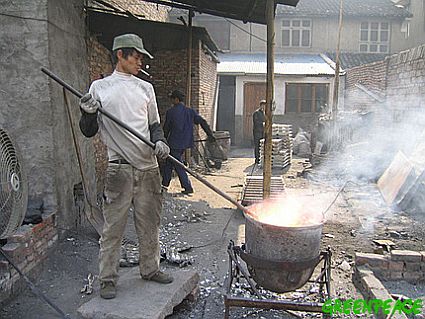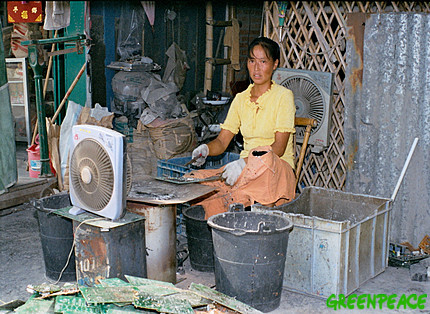
I would like to call Guiyu in China the city of toxic operations. Gigantic cargo ships dock here in the port of Nanhai full of e-waste, then starts the dismantling of parts with bare hands, followed by the burning of the plastics to extract metals, even as poisonous fumes fill the nearby shacks of men, women and children who work in a toxic environment.
The local ecosystem swallows it all and spits back with toxic, poisonous groundwater. Streams are black, pungent and choked with industrial waste.
This uncontrolled environmental disaster is of human making. Here and in several nearby townships, electronic waste, most of it imported, is broken up in small workshops. This is the destination for so-called electronic waste recycling. Wealthier countries outsource to this poor region just to cut costs of disposing of their electronic trash. They save their ecosystems and ruin that of a poorer country. Is this there idea of being eco friendly?
Armed mostly with small hand tools they take apart old computers, monitors, printers, video and DVD players, photocopying machines, telephones and phone chargers, music speakers, car batteries and microwave ovens. Workers in Guiyu painstakingly reduce every piece of equipment to its smallest components .

Chinese man smelts computer parts in the open air to extract metals. Open air burning of computer waste releases large amounts of toxic fumes.
These are then farmed off to ‘specialists’, workers dedicated to stripping wires for the copper they contain or melting the lead solder from circuit boards. Smelting releases highly poisonous gases and pollutes the environment. In Guiyu the price of water is ten times more than in Chendian, the neighbouring township that is today the main source of Guiyu’s water. The citys water sources were fit for drinking about twenty years ago.
The money however has come to this extremely impoverished region of peasants turned scrap workers, but at a grave cost. Many of the locals have moved out of their traditional single story homes into newly built three and four storey buildings where the ground floor is reserved as a scrap-sorting workshop. Now they employ migrant workers to risk their health in this toxic business.
Health costs have been grave especially from lead poisoning, the highest concentrations of lead were found in the children of parents whose workshop dealt with circuit boards and the lowest was among those who recycled plastic.Also there have been a higher number of miscarriages and handicapped babies among those who worked with e-waste.

Chinese woman smelts computer circuit boards over an open stove to extract metals. The fan is vain attempt to disperse the highly toxic fumes created by the smelting.
Chinese law forbids the importation of electronic waste and Beijing is also a signatory to the Basel Convention, an international treaty banning the shipment of e-waste from the developed to the developing world. However, the nefarious dumping carries on unabated. However, the countries economic boom requires metals and these electronic wastes have become one source for the same.
Even as the cost of land fills increases in Europe, while some countries ban dumping or incineration of e wastes in their own countries, the practice is becoming more popular in China as more and more imported junk enters the country.
I believe the companies that produce these goods should be responsible for recycling. Hopefully the future will see grrener technology but the future of this dump town in sustainable terms seems very dismal.
Source: Greenpeace

